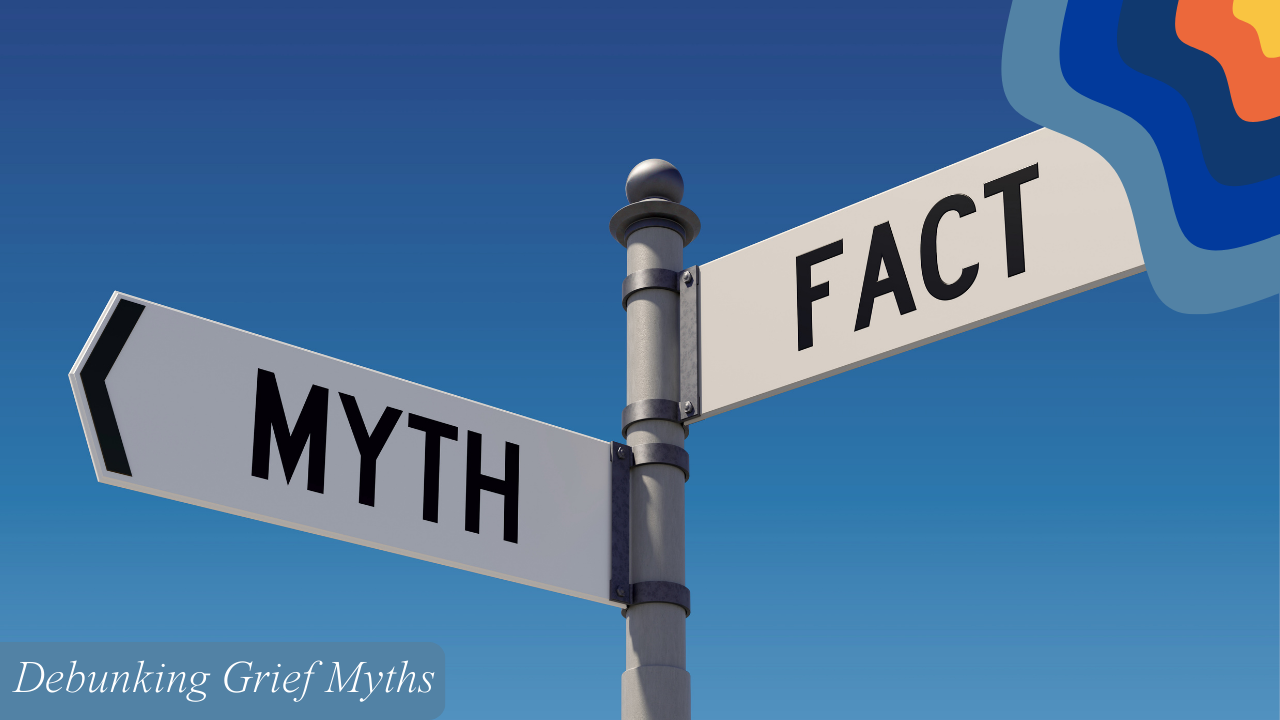Debunking Grief Myths
Oct 15, 2023
What are Grief Myths?
We believe loads of myths about grief— you know, those common misconceptions so many of us accept as truth. They often add to the complexity of an already challenging grief journey as they influence how our friends and family perceive our grief, and contribute to our own unrealistic expectations of what it looks like to deal with a loss.
Sometimes, we unintentionally buy into these myths, setting ourselves up for unnecessary frustration. Let’s break down a few of these myths together…it’s time we get real about our grief!
Myth 1: "Crying and feeling angry means you're not coping well with grief."
When it comes to grief, there's no rule book or right way to handle it. Some people cry more than they used to (sometimes a lot more), others get mad at the little things, and some may actually feel relief or happiness. And you know what? That's all perfectly okay. Your feelings are valid, and there's no "perfect grief score" to worry about. Trust your gut and do what feels right for you at the moment— as long as you’re not hurting yourself or anyone else
Grief isn't neatly packaged; it's a messy combination of feelings. And that’s normal.
Myth 2: "You shouldn’t mention someone else’s loss unless they bring it up— you don’t want to remind them of something so sad."
This is a toughy. We want to be respectful of others’ feelings, and yet…feeling like our grief is invisible is uniquely awful. It can feel like nobody else cares or understands what you're going through.
If you’re debating whether you should say something—anything— to someone you know is going through a loss, err on the side of saying something. Don't be afraid to bring it up out of fear that it will remind them of what they’ve lost. Trust us, they’re likely already thinking about it and will appreciate you reaching out. You don't need to have a perfect script. A simple "I'm here for you" can mean the world.
That said: everyone's different. Trust your gut, and give yourself grace that you will probably say something wrong at some point (or many points!) as you connect with grieving people. It’s ok. Grief is already isolating enough: let’s not avoid folks out of our own fears. Grief is a personal journey; your role is to offer a supportive presence, not a solution or pressure.
Myth 3: "My grief will follow five distinct stages and then it’ll be over."
Ah, yes: the famous five stages of grief. You've heard of them, right? Well, here's the thing – there is no set timeline to what our grief will feel like. You won’t press the Acceptance button and be healed overnight. Grief isn't a checklist, and you can't predict how it'll hit you. You might feel like you're bouncing between stages, skipping a few, or not experiencing them at all. And that's perfectly normal.
Your grief journey is as unique as you are. There's no map or GPS to navigate this road. Your feelings don’t need to fit into neat, little boxes. Your grief is real, and it's yours. Trust your instincts, and remember there's no right way to feel in your grief.
Grief is raw, real, and extremely messy. So, let's ditch the myths and embrace the reality. Cry if you need to, get mad if it helps (and it’s safe), and don't be afraid to talk about it if/when you want to.
You're not alone through your grieving process. Reach out for support (you are always welcome to join an upcoming Meet & Grieve!) or seek professional help if you want it. Remember to be supportive and extra patient if you have a friend or a loved one grieving. And as always, Grieve Leave is here for you!
Grieve on, friends.
Join the Grieve Leave movement
Share your info to join our Grieve Leave community. You don’t want to miss anything!


